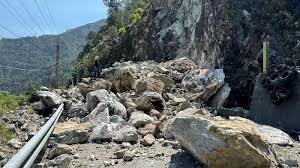
Introduction
Taiwan, a small island nation located off the southeastern coast of China, has emerged as a focal point for global politics, economy, and technology. Its significance is amplified by its strategic location, vibrant democratic system, and a leading role in semiconductor production. As tensions between China and the U.S. continue to escalate, Taiwan stands at the intersection of international relations, making its status and future pivotal to both regional and global stability.
Taiwan’s Economic Impact
In recent years, Taiwan has solidified its position as a critical player in the global tech supply chain, particularly in semiconductor manufacturing. According to a report by the Semiconductor Industry Association, Taiwan accounts for over 60% of global semiconductor foundry revenue. The Taiwan Semiconductor Manufacturing Company (TSMC) is a key contributor, supplying major global tech firms, including Apple and Qualcomm. With ongoing supply chain shortages intensified by the COVID-19 pandemic, Taiwan’s role has become even more pronounced as nations prioritize securing tech components.
Political Context
The political situation in Taiwan has also garnered international attention, particularly in the context of its relations with China. Beijing views Taiwan as a breakaway province and has not ruled out the use of force to achieve reunification. In response, Taiwan has been strengthening its defense capabilities and fostering closer ties with allies, including the United States. Recently, U.S. lawmakers have pushed for greater military support for Taiwan, signaling a commitment to its defense as part of broader strategic interests in the Indo-Pacific region.
International Response
Countries around the world are increasingly prioritizing their relations with Taiwan. Nations such as Japan and Australia have expressed support for Taiwan’s self-governance and warned against aggressive actions by China. As economic and geopolitical tensions rise, countries are recognizing the importance of supporting Taiwan, not only to maintain stability in the region but also to protect their own economic interests linked to Taiwan’s tech industry.
Conclusion
Taiwan stands at a crossroads of immense global significance, intertwining economic vitality with complex geopolitical dynamics. As tensions in East Asia continue to evolve, Taiwan’s future remains uncertain, yet increasingly critical. The international community must navigate these complexities carefully, understanding that Taiwan’s stability is essential for broader regional peace and economic prosperity. As events unfold, observers will be keenly focused on Taiwan’s responses to external pressures and the global implications of its choices.



